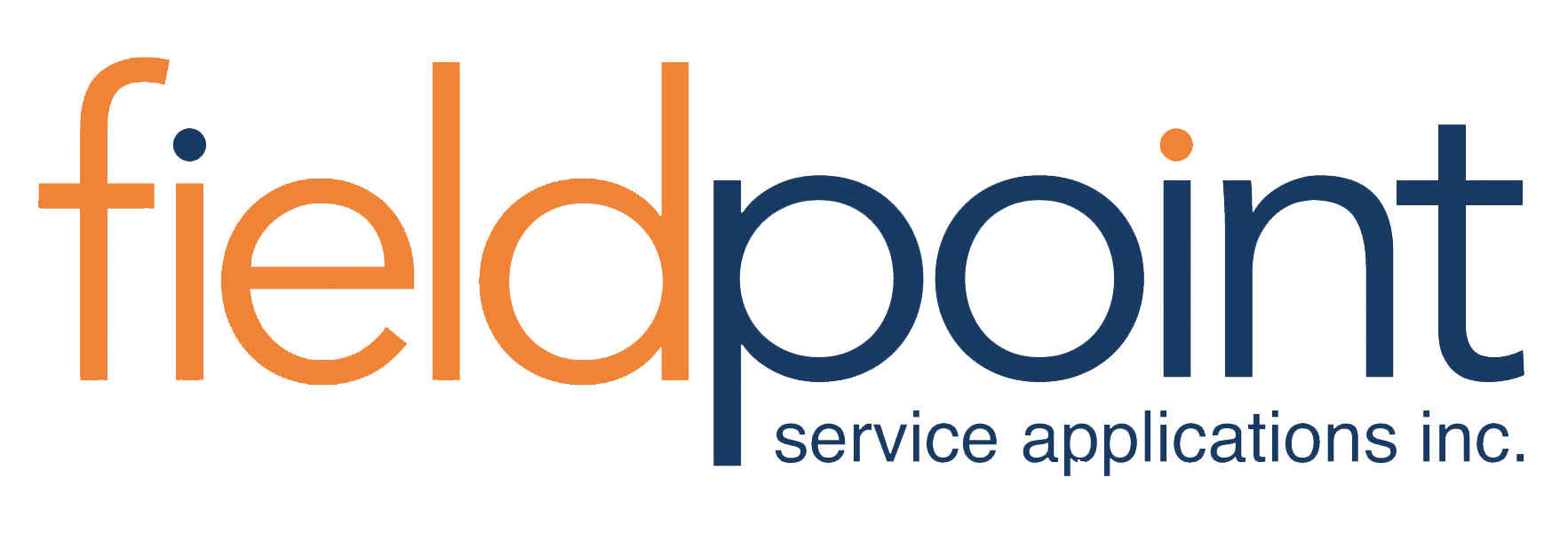Description

airSlate WorkFlow

Fieldpoint
Comprehensive Overview: airSlate WorkFlow vs Fieldpoint
AirSlate and Fieldpoint are two distinct products that serve different purposes within the realm of workflow automation and field service management, respectively. Here’s a comprehensive overview of each:
AirSlate Workflow
a) Primary Functions and Target Markets
- Primary Functions: AirSlate is a robust cloud-based platform designed to automate and streamline document workflows. Its core functionalities include document generation, e-signatures, workflow automation, and digital forms. AirSlate integrates with a wide variety of third-party applications like CRMs, ERPs, and more, enabling seamless data flow across different systems.
- Target Markets: AirSlate targets a broad range of industries, including finance, healthcare, education, and legal. It is particularly useful for businesses looking to enhance operational efficiency through automated document management and workflow processes.
b) Market Share and User Base
- While specific market share statistics may not be publicly available, AirSlate is a significant player in the workflow automation space, competing with platforms like DocuSign, Adobe Sign, and others. It has a robust user base owing to its comprehensive feature set and flexibility across industries.
c) Key Differentiating Factors
- AirSlate differentiates itself through its no-code platform, allowing users to design and implement automated workflows without deep technical expertise. Its integration capabilities and focus on end-to-end workflow automation across various business functions set it apart from competitors.
Fieldpoint
a) Primary Functions and Target Markets
- Primary Functions: Fieldpoint is a field service management (FSM) solution designed to help organizations manage their mobile workforce. Its key functionalities include work order management, scheduling and dispatch, inventory management, and customer management.
- Target Markets: Fieldpoint primarily targets field service industries such as HVAC, plumbing, electrical, IT services, and other industries that require on-site service delivery. It supports businesses in improving their service delivery processes and optimizing technician productivity.
b) Market Share and User Base
- Fieldpoint operates within the niche FSM market, where it competes with products like ServiceTitan, mHelpDesk, and Salesforce Field Service. It may not be as widely recognized as some larger players but maintains a loyal user base among small to medium-sized businesses in the field service domain.
c) Key Differentiating Factors
- Fieldpoint sets itself apart through its deep industry-specific features tailored to field service management. It offers robust integration capabilities with ERP systems like Microsoft Dynamics and NetSuite, enhancing its ability to provide end-to-end service management solutions. Additionally, its mobile app for field technicians is a critical component for real-time data access and updates.
Comparative Overview
When comparing AirSlate and Fieldpoint, it's essential to recognize that they serve distinct purposes:
- Market: AirSlate caters broadly to enterprises seeking document and workflow automation, while Fieldpoint is niche-focused on field service management.
- Functionality: AirSlate emphasizes document-centric processes and automation, whereas Fieldpoint concentrates on managing mobile workforces and service delivery.
- Integration and Flexibility: Both platforms offer significant integration capabilities, but their flexibility is context-specific to their target markets (workflow management vs. field service operations).
Overall, the choice between these platforms would depend heavily on the specific needs of a business. Businesses requiring document management automation might lean towards AirSlate, while those needing to optimize field services would find Fieldpoint more beneficial.
Contact Info

Year founded :
Not Available
Not Available
Not Available
Not Available
Not Available

Year founded :
Not Available
+44 20 7183 3216
Not Available
United Kingdom
http://www.linkedin.com/company/fieldpoint
Feature Similarity Breakdown: airSlate WorkFlow, Fieldpoint
To provide a feature similarity breakdown between airSlate WorkFlow and Fieldpoint, I'll outline their core features, user interface comparisons, and unique features for each product:
a) Core Features in Common:
-
Workflow Automation:
- Both airSlate and Fieldpoint offer robust workflow automation capabilities, allowing users to streamline and automate business processes to improve efficiency.
-
Integration Capabilities:
- Both platforms support integration with various third-party applications and services, enabling seamless data transfer and connectivity within existing IT ecosystems.
-
Document Management:
- Document creation, tracking, and management are core functionalities found in both products, aiding in maintaining organized records.
-
Mobile Access:
- Both solutions offer mobile access, allowing users to manage workflows and tasks remotely.
-
Collaboration Tools:
- They provide tools that facilitate team collaboration, allowing multiple stakeholders to engage with and contribute to workflows and specific tasks.
b) User Interface Comparison:
-
airSlate WorkFlow:
- AirSlate's user interface is typically designed to be intuitive and user-friendly, often leveraging a drag-and-drop experience for workflow creation. The platform emphasizes ease of use with minimal coding skills required, which appeals to users across varying technical backgrounds.
-
Fieldpoint:
- Fieldpoint's interface is focused more on field service management use cases. It is generally more data-centric and tailored for industries with specific needs (e.g., field service businesses), thus it may come with a steeper learning curve but offers detailed functionality to meet those specialized requirements.
c) Unique Features:
-
airSlate WorkFlow:
- No-Code Platform: airSlate offers a complete no-code environment for creating and managing complex workflows, appealing to organizations seeking flexibility without needing extensive IT support.
- E-signature Integration: AirSlate includes built-in e-signature tools, facilitating document approval processes within the same environment.
- Workflow Analytics: Advanced analytics for monitoring and optimizing workflows are more prominently featured in airSlate.
-
Fieldpoint:
- Field Service Management: Fieldpoint specializes in solutions for field service management, catering specifically to industries like HVAC, telecommunications, and IT services with features such as work order management, dispatch, and scheduling.
- Job Costing and Invoicing: Fieldpoint offers in-depth job costing and invoicing capabilities tailored for service management tasks, which may not be as emphasized in airSlate.
- Asset and Inventory Management: It provides toolsets specifically for managing assets and inventories within field service operations.
In summary, while both platforms share certain core features such as workflow automation and integration capabilities, airSlate leans toward general document-centric workflow automation across industries with an emphasis on ease of use, while Fieldpoint specializes in field service management, offering robust solutions tailored for specific industry needs.
Features

Not Available

Not Available
Best Fit Use Cases: airSlate WorkFlow, Fieldpoint
Certainly! Both airSlate WorkFlow and Fieldpoint are designed to streamline business processes, but they cater to different needs and scenarios based on their unique functionalities.
a) AirSlate WorkFlow
Best Fit Use Cases:
-
Businesses Focused on Automation and Document Management:
- Target Users: Small to medium-sized businesses (SMBs) and enterprises looking to automate document-centric workflows.
- Industries: Legal, finance, healthcare, HR, and any industry heavily reliant on document generation, approval, and signing.
- Projects: Streamlining approval processes, contract management, employee onboarding, and client intake forms.
-
Process Optimization:
- Companies looking to digitize paper-based processes to improve efficiency and reduce errors.
- Businesses needing integrations with existing software systems like CRMs, ERPs, and other cloud services.
-
Organizations Requiring Compliance and Audit Trails:
- Industries that must adhere to strict regulatory requirements (e.g., healthcare, financial services) benefit from airSlate's ability to maintain audit logs and ensure compliance.
b) Fieldpoint
Preferred Use Cases:
-
Field Service Management:
- Target Users: Companies that provide field services, such as HVAC, electrical, plumbing, fire safety, and other installation, repair, and maintenance services.
- Industries: Facilities management, construction, equipment maintenance, and other service-based industries.
- Projects: Scheduling and dispatching technicians, job tracking, mobile workforce management, and inventory management.
-
Service Delivery Optimization:
- Businesses aiming to enhance service efficiency, improve customer satisfaction, and optimize resource allocation in the field.
- Companies requiring an integrated solution for contract management and real-time updates from the field to the back office.
d) Catering to Industry Verticals and Company Sizes
airSlate WorkFlow:
- Industry Verticals: Suitable for a wide range of industries seeking to automate document workflows, from healthcare and education to finance and legal.
- Company Sizes: Scales well from small businesses to large enterprises. Its flexibility and integration capabilities allow it to grow with the business, adapting to increasing complexity and document volume.
Fieldpoint:
- Industry Verticals: Tailored to industries that depend on field services and need comprehensive solutions for managing technicians, service orders, and customer contracts.
- Company Sizes: Primarily used by small to medium-sized businesses and some larger enterprises that have significant field operations or require complex field service management.
In summary, airSlate WorkFlow is ideal for organizations focused on document workflow automation, while Fieldpoint excels in managing field service operations. Each platform offers unique features tailored to specific industries and operational needs, allowing businesses to choose the one that best fits their specific requirements.
Pricing

Pricing Not Available

Pricing Not Available
Metrics History
Metrics History
Comparing undefined across companies
Conclusion & Final Verdict: airSlate WorkFlow vs Fieldpoint
When considering which product offers the best overall value between airSlate WorkFlow and Fieldpoint, it's important to evaluate the specific needs and priorities of the organization in question. Here’s a conclusion and final verdict based on the available information:
a) Best Overall Value:
Choosing the "best overall value" depends on the specific use case, but generally speaking, airSlate WorkFlow might offer greater overall value for organizations prioritizing comprehensive workflow automation with ease of use and integration across diverse business processes. Fieldpoint, on the other hand, shines for companies deeply entrenched in field service management, offering industry-specific tools and capabilities.
b) Pros and Cons:
airSlate WorkFlow:
Pros:
- Ease of Use: Highly intuitive interface suitable for non-technical users.
- Integration Capabilities: Easily integrates with various third-party applications (e.g., CRMs, file storage solutions).
- Versatile Automation: Suitable for a wide range of business processes beyond just field services.
- Scalability: Can be scaled across multiple departments with varying needs.
Cons:
- Specificity: May lack the depth of industry-specific features that a product like Fieldpoint offers for field service management.
- Customization Limits: While versatile, deep customization might require additional developer support or workarounds.
Fieldpoint:
Pros:
- Specialization: Excellent for field service management with tools tailored for work order management, project tracking, and mobile workforce management.
- Industry Focus: Rich in features specific to industries requiring field services such as HVAC, plumbing, and electrical.
- Integration with ERP: Seamlessly integrates with major ERP and accounting systems, facilitating financial management.
Cons:
- Complexity: Could be overwhelming for non-technical users due to its specialized features.
- Broad applicability limitations: While strong in field service, it may not be as versatile beyond its core focus areas.
c) Recommendations for Users:
-
Define Core Needs: Assess whether your primary need is broad workflow automation (favoring airSlate) or specialized field service management (leaning toward Fieldpoint).
-
Integration Requirements: Evaluate the existing software ecosystem in your organization. airSlate provides broader integration capabilities with varied platforms, while Fieldpoint’s strength lies in integrating with ERP systems.
-
User Technical Proficiency: If your team lacks technical expertise, airSlate’s simple UI might be more accessible, whereas Fieldpoint may require more training and onboarding time.
-
Scalability and Versatility: If you anticipate expanding workflow automation to multiple departments with different needs, airSlate’s versatility could be advantageous.
In conclusion, both airSlate WorkFlow and Fieldpoint cater to distinct aspects of business operations. AirSlate WorkFlow is best suited for organizations seeking robust, scalable automation solutions across various processes, while Fieldpoint excels in offering industry-specific tools for businesses in need of meticulous field service management. The final choice should align with the specific priorities and strategic goals of the organization.
Add to compare
Add similar companies




